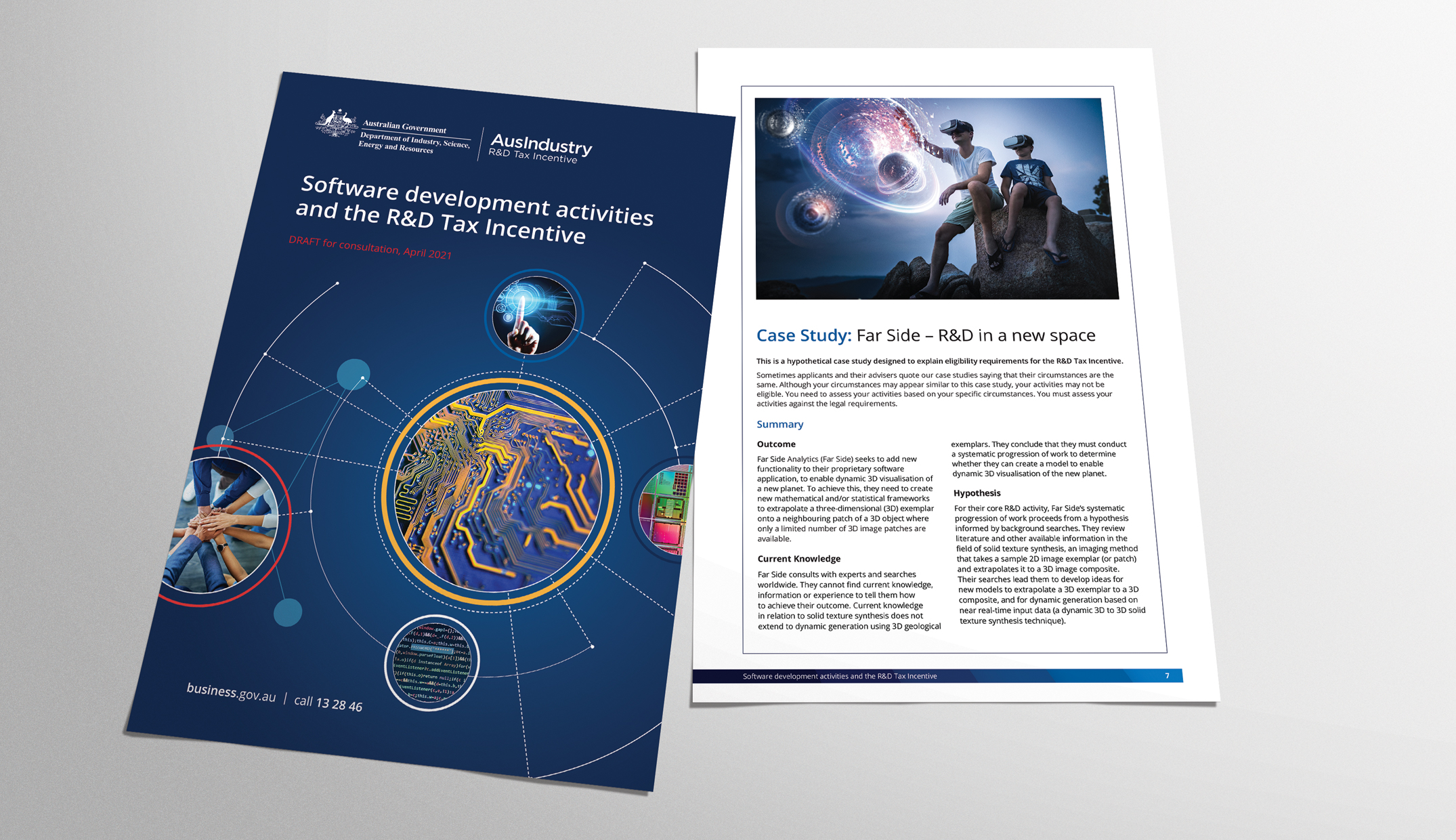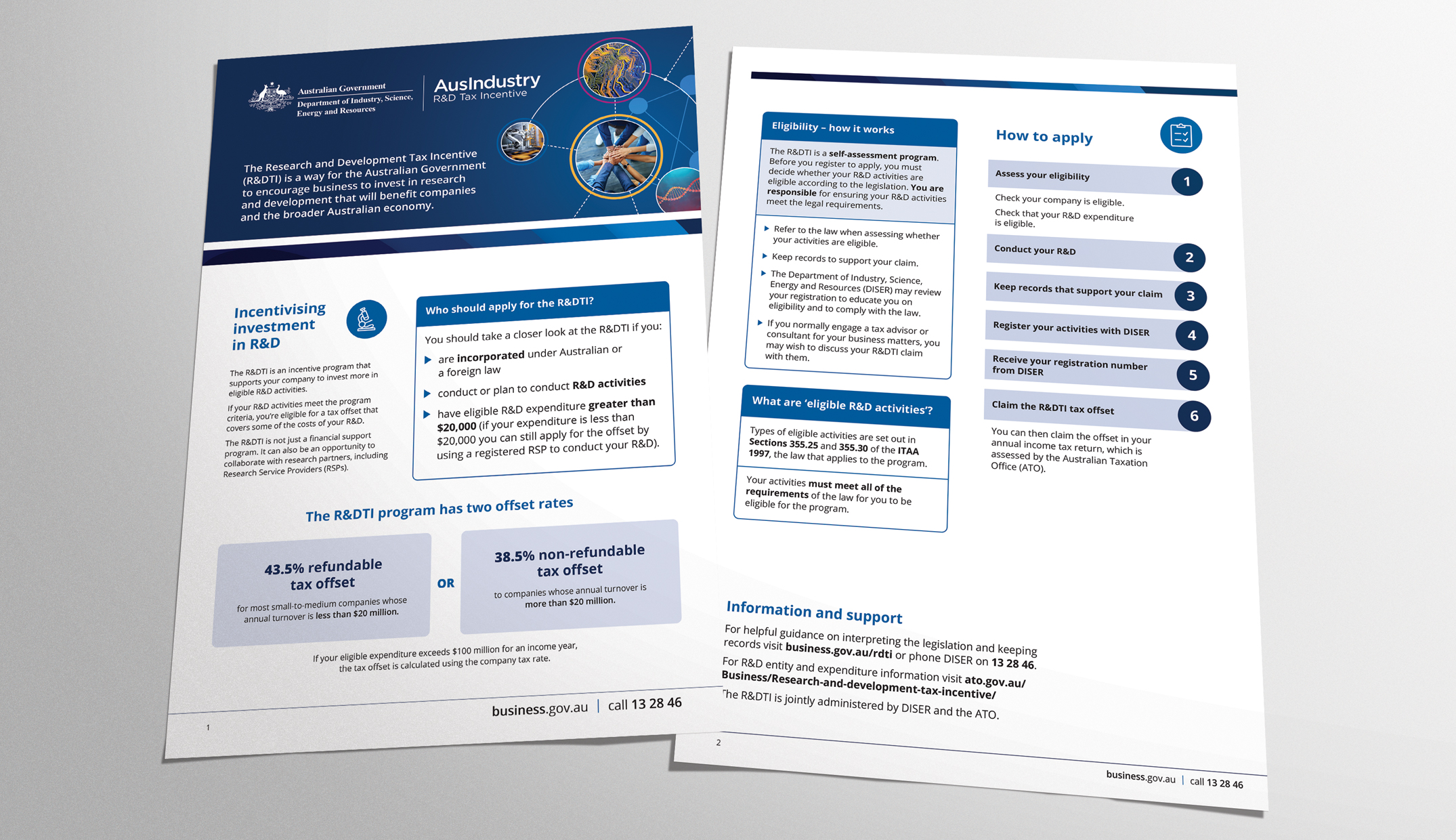

Although research suggests that companies who invest in research and development (R&D) are often more successful and contribute to economic growth at a higher rate, Australia continues to lag the developed world when it comes to spending on R&D.
Our three-year strategy to educate companies about the Australian Government’s Research and Development Tax Incentive (R&DTI) aimed to make a complex application process more accessible to support higher levels of compliance and improve the user experience.
The R&DTI program is a key part of Australia’s innovation policy and one of the ways the Australian Government encourages companies to invest in experimental R&D that will benefit them and the broader economy.
The R&DTI supports around 14,000 Australian companies each year to invest more than they normally would in specific types of R&D that are eligible according to the legislation underpinning the program. Companies receive a tax offset to cover some of their R&D costs – but only if their R&D is eligible. Because some kinds of R&D are excluded from the program, the responsibility falls on companies to self-assess and make sure their activity is eligible before they claim the tax offset.
The Department of Industry, Science, Energy and Resources (DISER) engaged Fenton in 2020 to develop an interim and a long-term strategy to guide communications and stakeholder engagement about the R&DTI during the COVID-19 pandemic and beyond.
The strategies focused on streamlining and strengthening communications relating to the conditions (education) and benefits (promotion) of the program; how it works, how it defines eligible R&D; as well as overcoming known barriers and taking up opportunities to strengthen stakeholder relationships.
We first worked with DISER to implement the interim strategy, developing a range of new and updated R&DTI communication products including the R&DTI Insights podcast series, fact sheets, animation, presentations and social content.
As the Australian Government prepares to introduce a number of reforms to the program as part of the Federal Budget 2020-21, we are supporting DISER to implement the long-term strategy, which includes developing new presentations to help engage stakeholders and companies, and supporting program teams to develop the new registration form and updated website.
The long-term strategy also includes a qualitative and quantitative research framework to evaluate communication activity and ensure key stakeholders are given regular opportunities to provide feedback on the program.